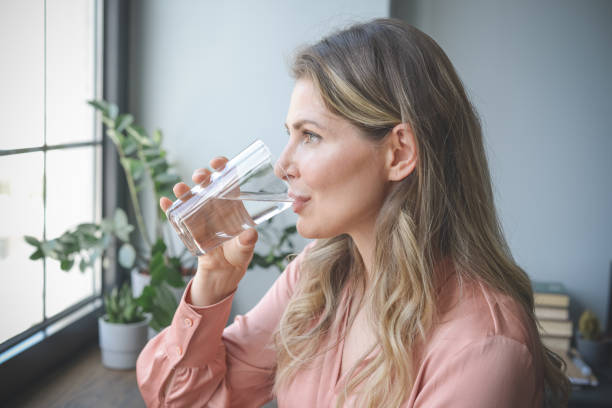|
Dehydration is a serious issue, especially during the hot summer months when humidity can be quite high. Even if you live in an area with low humidity, it’s easy for your body to become dehydrated. This is because sweat evaporates very quickly, leaving your skin dry and itchy. There are many different ways that you may become dehydrated, and some of them are not obvious. The best way to prevent dehydration is by drinking plenty of water every day. To help you fight dehydration and stay hydrated throughout the summer, we’ve compiled this list of common causes of dehydration and how to beat them. Keep reading to discover more!
Travelling can be hard on your body and lead to dehydration. If you’re travelling to a new place, you may not know how to stay hydrated in the local climate. If you’re visiting an arid or tropical area, it’s important to stay hydrated, especially during the dry season. Tropical areas have high temperatures and high humidity, which can be hard for some people to adjust to. If you travel often for work, it’s important to know how to stay hydrated wherever you go. It’s easy to become dehydrated if you don’t drink enough water. The air on a plane is very dry, which can make you feel thirsty. To avoid dehydration when flying, you should drink plenty of water before and during your flight. You should also avoid alcohol and caffeinated drinks, as they can make you urinate more. Extreme heat can cause fluid loss, resulting in dehydration. Heat and humidity are two of the most common causes of dehydration. They cause your body to sweat and lose fluid through your skin. If you don’t drink enough water, the water levels in your body will drop. This can cause symptoms like headaches, muscle cramps, dizziness, and nausea. If you don’t hydrate properly, it can be dangerous. Heatstroke can develop if you don’t drink enough water in extreme heat. Heatstroke is a life-threatening medical emergency. Symptoms include nausea, vomiting, headaches, dizziness, muscle cramps, and more. If you notice these symptoms, you should hydrate immediately and seek medical attention if necessary. Constipation and Diarrhea can lead to dehydration. Both constipation and diarrhea can cause dehydration. If you have diarrhea, your body will lose fluid, which will make you dehydrated. If you have constipation, your body will not be able to absorb the water properly, which leads to dehydration. If you have either of these conditions, it’s important to hydrate properly to avoid dehydration. If you have diarrhea, you should drink extra fluids to make up for what your body is losing. If you have constipation and can’t drink enough water, you should take an over-the-counter laxative. If you have constipation, it’s important to stay hydrated to avoid dehydration. Excessive Sweating Can Cause Dehydration Excessive sweating is a common cause of dehydration. When you sweat, it evaporates quickly, which can make your skin dry and itchy. If you’re engaged in physical activity, you’re likely to sweat more than usual. This can lead to dehydration, especially if you’re not drinking enough water. If you’re playing sports, it’s important to stay hydrated during your activity. You should also be aware of your sweat and make sure to drink plenty of water after your activity has ended. If you don’t hydrate properly, you can develop symptoms like headaches, muscle cramps, dizziness, and nausea. Food Intolerances Can Lead to Dehydration Some food intolerances can cause dehydration. For example, if you have a gluten intolerance, you may not be able to properly absorb water. If you have an intolerance to dairy, you may have trouble hydrating properly. Some people have a diet that makes it difficult to stay hydrated. For example, if you are on a vegan diet or you have certain religious restrictions, it may be harder for you to stay hydrated. If you have any special diet requirements, it’s important to make sure you’re staying hydrated properly. You can also talk to a doctor about how to stay hydrated on a special diet. Illness Can Cause Dehydration Many illnesses can cause dehydration, including the common cold and the flu. When you’re sick, your body expels a lot of fluids. You need enough water to stay hydrated and healthy while you recover. It’s important to stay hydrated when you’re sick to avoid complications. If you don’t drink enough water, your symptoms will be worse, and it will be harder to recover. If you’re sick and dehydrated, you may experience nausea, vomiting, headaches, dizziness, and more. It’s important to take steps to hydrate while you’re sick to recover faster. Being hydrated is important for everyone, but it can be easy to forget to drink water during the summer months. All of these common causes of dehydration can happen in any season; it’s just more likely to occur in the summer months. The best way to stay hydrated is to drink water throughout the day. It’s recommended to drink eight glasses of water per day, but everyone is different. Make sure to pay attention to how much water you drink and you’ll be more likely to stay hydrated.
0 Comments
You may think drinking water is just something you have to do as part of a healthy lifestyle. But it turns out that drinking water has a number of benefits you might not have realized. There are many studies showing the benefits of drinking water, but most people don’t really know what those benefits are or how drinking water can improve their lives. Well, here we will reveal those hidden secrets about drinking water that you probably didn’t know.
Good for your digestion Digestion is the process by which your body breaks down food into nutrients that can be used by your body. And drinking water can actually help with this process! Water helps move food through your digestive tract, so it can be broken down more efficiently. This means you’ll experience less bloating, cramping, and gas. In other words, drinking water can keep your digestion regular and efficient. Helps you lose weight Drinking water may help you lose weight. Specifically, water can help you lose “bad” (or unhealthy) weight, as opposed to “good” weight like muscle. When you drink water, it causes your body to release a hormone called vasopressin, which causes your body to release fat cells. This is why many weight loss programs recommend drinking water to help with weight loss. However, it’s important to note that water doesn’t automatically mean weight loss. You can also drink other calorie-free beverages such as herbal teas, coffee, or even black tea. Improves your skin Your skin is the largest organ in your body. It is responsible for protecting your body from harmful toxins, bacteria, and viruses. Your skin also helps regulate your body temperature and it produces vitamin D, which is essential for strong bones and teeth. This is why it is so important to keep your skin healthy! There are many ways to improve your skin’s health, such as getting enough sleep, eating nutrient-rich foods, and drinking plenty of water. Drinking water can actually improve your skin’s appearance. This is because water helps flush out toxins and excess sodium from your body. When these toxins and sodium build up in your body, they make your skin look unhealthy and wrinkly. Help with exercising Drinking water before, during, and after a workout can help you stay healthy and fit. Water can help prevent muscle cramps and fatigue that can occur during a workout. It is best to drink water before and during a workout because water does not replace electrolytes, which are minerals that can be depleted when exercising. Electrolytes help regulate your heartbeat, blood pressure, and regulate your muscles. When you exercise, your body sweats, which can cause you to lose electrolytes. Drinking water before and after exercising can help prevent dehydration and improve your overall health and fitness. Boost your brain function When you’re dehydrated, your body has to work harder to do everything. The same goes for your brain! When you haven’t had enough water, your brain doesn’t work at full capacity. Drinking water can help improve your brain function and even boost your mood! When you don’t drink enough water, your blood vessels constrict. This means that blood isn’t flowing as easily throughout your body. When your blood vessels are constricted, your brain doesn’t get enough blood. This can make you feel foggy and like your brain isn’t working properly. In conclusion, drinking water has a ton of health benefits. It can help improve your digestion, assist with weight loss, improve your skin, help with exercising, and boost your brain function. With all of these benefits, it's no wonder people are encouraged to drink more water! Now that you know about the benefits of drinking water, you can upgrade your health and fitness level by making sure you drink plenty each day. Dehydration is a state of having too little water in the body. While it can happen at any time, dehydration is especially dangerous in hot weather or during exercise. Dehydration can make you feel weak and increase your risk of heat exhaustion, heat stroke, and fainting. Keep reading to learn more about the dangers of not drinking enough water and how you can avoid dehydration.
What Causes Dehydration? Dehydration is when your body does not have enough water. When you don't drink enough water, your body will take water from other tissues in your body, like your muscles and kidneys, to keep your brain and spinal cord hydrated. This causes a drop in your blood pressure, which can make you feel lightheaded or dizzy. If you don't drink enough water, you can develop dehydration. If you are active, you may be more likely to get dehydrated because your body sweats to cool you down. When you sweat, you lose fluids. If you do not drink enough water to make up for the loss, dehydration can occur. Dehydration can be caused by many factors: not drinking enough water, exercising in hot weather, having a fever or vomiting and diarrhea. While dehydration can be dangerous for anyone, it's particularly important for young children and older adults, who may be more susceptible. Signs and Symptoms of Dehydration
The Dangers of Dehydration
How to Stay Hydrated Staying hydrated is not just about drinking lots of water. It's about drinking lots of water and other fluids, too.
Tips to Avoid Dehydration
Dehydration is a serious condition that can lead to illness or even death if not treated. You can prevent dehydration by drinking fluids throughout the day, even when it isn't hot outside. Be sure to drink plenty of water daily to avoid dehydration, especially when exercising or in hot weather. If you feel like you're becoming dehydrated, drink water as soon as possible. This will help bring your body back to normal and reduce the risk of any serious health problems. |
Welcome!Thank you to all our Writers and Bloggers who shares their expertise, ideas and research work! Read More
All
|




 RSS Feed
RSS Feed